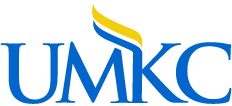Oral & Craniofacial Sciences MS Admissions Criteria & Process
Application Deadlines
The Department of Oral and Craniofacial Sciences will provide guidance to the potential applicant who has already been accepted in a UMKC SOD residency program (Endodontics, Orthodontics, Periodontics) in terms of the application deadline for Summer Semester (typically around Mar 1).
Application Criteria
The OCS MS program is designed for applicants, who will be concurrently enrolled in a dental residency program. To be eligible for a dental residency program, you must be a US citizen or permanent resident with a DDS or DMD degree from an institution accredited by the Commission on Dental Accreditation or the Canadian Dental Accrediting Commission.
Applicants must:
- Have a DDS/DMD or equivalent degree.
- A minimum cumulative G.P.A. of 3.0 for all undergraduate work including dental school.
- Graduate Record Examination (GRE), with the following minimum scores:
GRE Score Requirements:
Quantitative 150
Verbal 155
Analytical Writing 4.0
Application Procedures
Interested students should apply to the OCS MS program after being accepted into the dental residency program (Endodontics, Orthodontics, Periodontics). After you have been accepted, contact Dr. Mary Walker regarding your interest. You will receive specific guidance on the application process.
OCS MS application must include:
- Official transcripts from all colleges attended
- Official GRE scores
- Two letters of recommendation that address your potential for the OCS program.
- Personal Statement: Indicating your past research experience, your reason for pursuing the Oral and Craniofacial Sciences MS degree and your possible research interests.
- Resume/CV
Recommendation letters may be addressed to:
Dr. M.P. Walker, Director of Oral & Craniofacial Sciences Graduate Programs
UMKC School of Dentistry
650 East 25th Street
Kansas City, MO 64108-2795

